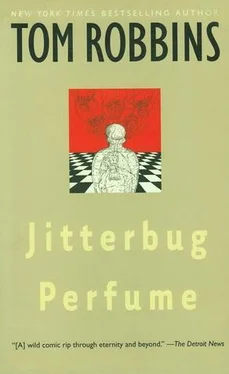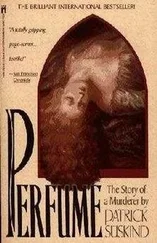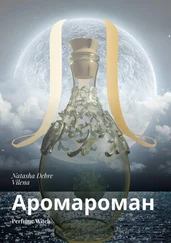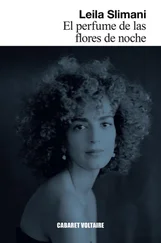“Damn you, Alobar! By the blue piss of Kali, how you frustrate me! How could any man venture as far as you have and then be unwilling to go further? Is it a failure of imagination that has snipped off your curiosity, or a failure of nerve that leaves you so eager to settle for the one concession you have won from the fates?”
“One concession, eh? You make it sound so trivial. Let me tell you something, Kudra. Each and every morning when I awake, my eyes brim with tears at the realization that I am still here breathing when all who shared my natal day have for half a millennium been dust; each and every morning when first I see the dawn ray take your sleeping face tenderly in its tongs, I tremble in a kind of ecstasy that you and I continue to lie in love together, century after juicy century, while every other pair of lovers who have lived has had to helplessly watch their passion suffocate in the sags of their sickly flesh. Now that may strike you as some small, unworthy thing. .”
Kudra took his cheeks in her hands (he was clean shaven then, in the seventeenth-century style) and kissed him. She shook her head from side to side, blinking back a few tears of her own. “No, my darling, it strikes me as magnificent beyond description.” Again she kissed him. “But it happens not to be the end-and-all. If a person have a glass, does that mean he should refuse a bottle; if he have a bottle does it mean he should not want wine? Come now, darling, do not pull away, but hear me out. We have crossed the threshold of the house of divine knowledge, yet we linger in the anteroom admiring its wallpaper and shun the main chambers of the house. Why is it we resist exploring the mansion to which it has been our unique privilege to gain admission?”
“Because,” answered Alobar, “Death is the master of that house. My ambition has been to free myself from Death, not to visit him in his parlor and share tea.”
“Death is not a resident of the house. 'Death' is merely the name we give to certain rooms of the house, rooms that we, the so-called 'living,' fear for the simple reason that we have not passed through them.”
Alobar righted the overturned basket and began to pick up pieces of bark. “Again, my little refugee from suttee, I must question your authority in such matters.”
Kudra wished then to tell him the truth about Lalo, that the nymph had not run off with a mariner while Alobar was in Greece but had died, peacefully, happily, in the bed where Pan now slept; that she had attended Lalo's demise and, indeed, had followed her out of her body, traveling with her for a ways into the white light of the Other Side, until a sudden thought of Alobar caused her to turn back. Her concept of death was altered thereafter, and she wished to tell Alobar about that, as well, but she had promised the nymph to keep secret her passing. “The world must not think of nymphs as aged or dying,” said Lalo, “for that runs counter to the girlish sexual things that we represent.” Perhaps Lalo was vain to the end, but it must be noted that she cared about the world, even the modern world (whose replacement of cosmic order with a riotous contest between would-be equals had helped to kill her).
“Listen,” said Kudra. “When we were in the caves, we learned by experimenting, by trial and error, guided by some intelligence, perhaps divine, that radiated from the minerals there. What harm would there be in experimenting with dematerialization here in our shop? It is a temple of Pan now, after all. I feel strongly that we will be guided once again. The divine energy doesn't limit itself to some caverns in India. It is everywhere if we are only open to it. Trust my intuition, Alobar. What harm to try?”
“Well, all right, I shall consider it,” grumbled Alobar. “Just so long as it does not involve aging.”
She thumped him with a look of iron. “Should the monks or any other folk start to trouble us before we have either discovered dematerialization or a base note for Pan's perfume, then I shall age fast and furiously, without hesitation, and you would be wise to follow suit.”
At that, their quarreling commenced all over again.
Their quarreling chewed through the curtains, pierced the casements, and rattled over the cobblestones outside. How strange it must have sounded, this quarreling about dematerialization, voluntary aging, goat gods, and immortality, to a city that was primed for the Age of Reason, a populace that was beginning to put Descartes before des horse.
Although the contention that matter can transcend, at will, its material character would have had Descartes spinning in one or the other of his graves, a person who can believe in physical immortality is merely a step away from believing in dematerialization. Kudra believed in it and was prepared to experiment. Alobar probably believed in it but was reluctant — frightened, honestly — to pursue it. Wiggs Dannyboy of the Last Laugh Foundation, trained in the tradition of Cartersian doubt (deliberate suspension of all interpretations of experience that are not absolutely certain), had, unlike Kudra, never witnessed the Indian rope trick, nor had he, unlike Alobar, ever been flabbergasted by Bandaloop, yet to him the notion of material transcendence was credible. Perhaps that was because he was Irish.
“Subatomic particles apparently de- and rematerialize fairly routinely,” Dr. Dannyboy has written. “Some of them actually can be in two places at once. Their freedom from the normal confines of the space-time continuum is thought to be the result of a weird electricity, an intelligent, creative, playful, and unpredictable interaction among oppositely charged entities in motion.” On at least one occasion, Dr. Dannyboy has described those energized particles as “fairies,” and, unfortunately, there is doubt that he was speaking metaphorically. But, again, he is Irish and, moreover, has swallowed in his day a lot of drugs.
At any rate, Dr. Dannyboy continued: “We ourselves are built of subatomic particles (and the spaces in between them), and our organisms are electrically as well as chemically powered. Our cells, or something that occupies our cells, transmit an electrical pulse. When we breathe, bathe, eat, make love, and think the way that Kudra and Alobar did, we alter the cellular amperage until we find ourselves vibrating at the frequency of the eternal: immortality .
“When interrogated about how they can walk through flames without being burned, 'primitives' have conveyed to anthropologists that they raise the vibratory level of their flesh to equal that of the fire. In like manner, then, an adept might raise — or lower — his or her vibratory rate to match that of another dimension, thereby disappearing from our customary universe and popping up in the other: dematerialization .”
From his vantage point in the twentieth century, Dannyboy was privileged to marshal a fair amount of scientific evidence that supposedly explains Alobar's and Kudra's accomplishments. No doubt, such data have their benefits, if for no other reason than that the couple's immortalist methodology often sounds too simplistic to be feasible: the result was far more dramatic than the process, even though, for all practical purposes, the result was the process.
Whether guided by a divine intelligence, as Kudra suggested, or inspired in some supranatural fashion by the absent Bandaloop doctors (maybe the Bandaloop were agents of a divine intelligence), or simply informed by their own intuition, she and Alobar devised, during their residency in the caves, a program based upon the four elements: air, water, earth, and fire. If encouraged, Wiggs Dannyboy will expound upon each element in turn, detailing how it legitimately manifested itself in Kudra and Alobar's program. Dr. Dannyboy is simply mad for the subject of immortality and will yak about it until the cows come home, although the precise time and date of bovine arrival has yet to be reckoned to his satisfaction.
Читать дальше












